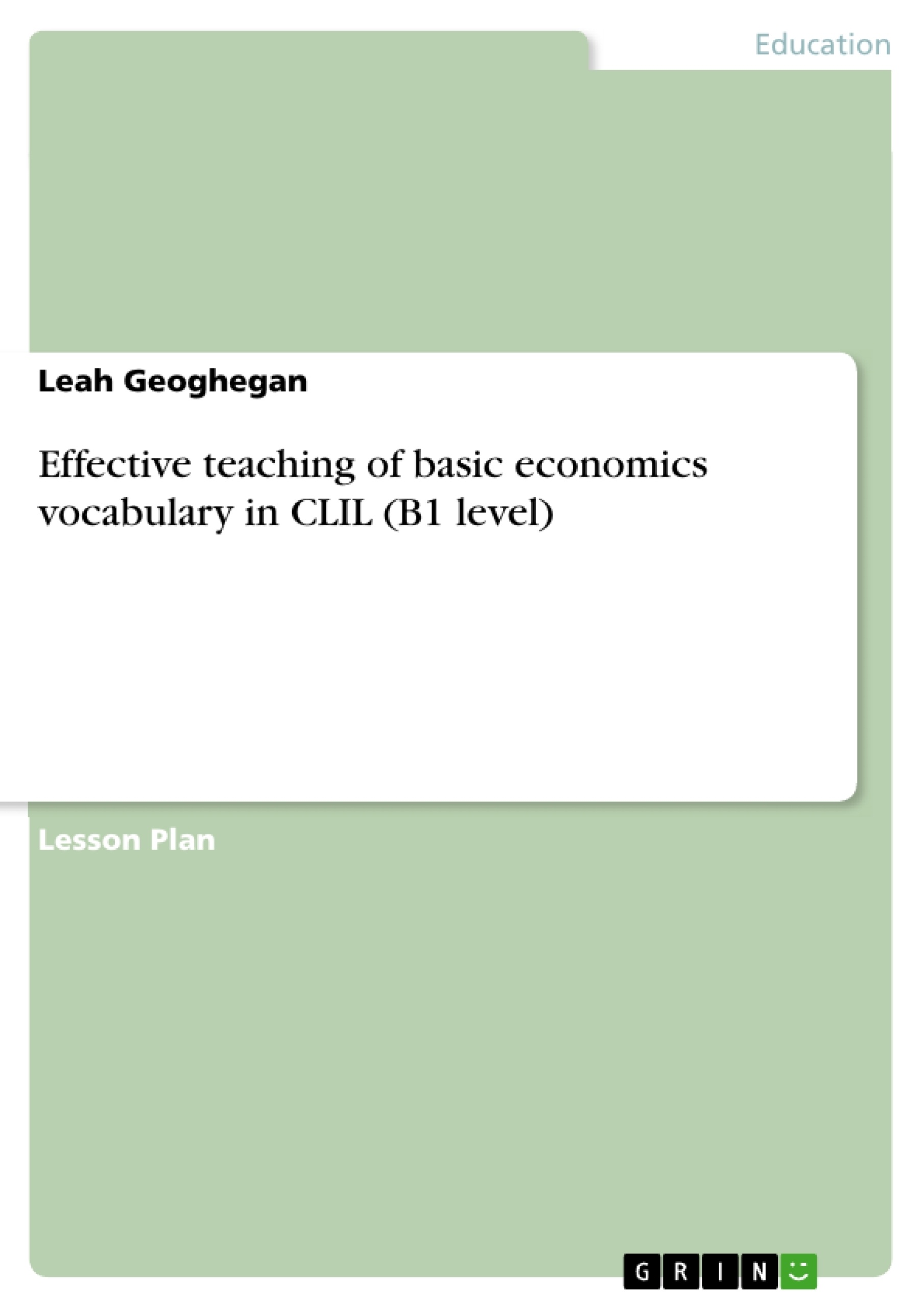This article aims to shed light on the benefits and challenges of Content and Language Integrated Learning (CLIL) in the context of teaching economics. It focuses on the benefits of the CLIL approach for teaching basic economics vocabulary, as well as the need for specialized teaching materials and methods to develop both students' language and subject competence.
The draft discusses the CLIL approach, which involves the teaching of academic content through a foreign language, and highlights its increasing popularity in the modern educational landscape. Originally inspired by historical educational practices, CLIL is now experiencing a renaissance, particularly in response to demands for multilingualism and improved foreign language skills in Europe. In the Spanish education system in particular, CLIL has proven to be an effective strategy for increasing foreign language competence. The article highlights the benefits of CLIL, such as authentic language use, motivational learning tasks and increased language contact, while at the same time teaching subject content. Despite the obvious benefits, the article notes that the implementation of CLIL poses specific challenges.
Inhaltsverzeichnis (Table of Contents)
- Introduction
- Economics vocabulary in Content and Language Integrated Learning
- Lesson plan for practising basic economics vocabulary in CLIL
- Conclusion
Zielsetzung und Themenschwerpunkte (Objectives and Key Themes)
This paper explores the role of vocabulary in Content and Language Integrated Learning (CLIL) contexts, particularly focusing on economics vocabulary. The primary objective is to demonstrate the significance of subject-specific vocabulary for learning and understanding economic concepts. It also aims to address the lack of readily available resources for practicing economics vocabulary in CLIL classrooms.
- The benefits of CLIL for language and content acquisition
- The importance of subject-specific vocabulary in CLIL
- The need for dedicated resources for practicing economics vocabulary in CLIL
- The use of collaborative tasks for motivating learners in CLIL
- The development of a lesson plan to practice basic economics vocabulary in CLIL
Zusammenfassung der Kapitel (Chapter Summaries)
- Introduction: This chapter provides an overview of CLIL and its increasing popularity as a teaching approach. It highlights the benefits of CLIL, such as providing authentic language use opportunities, motivating learners with real-life tasks, and increasing exposure to the target language.
- Economics vocabulary in Content and Language Integrated Learning: This chapter examines the significance of subject-specific vocabulary in CLIL contexts, particularly focusing on economics. It discusses previous research that has explored vocabulary gains in CLIL and the limited focus on economics-related vocabulary. It highlights the need for dedicated resources to support CLIL teachers in practicing economics vocabulary with their students.
- Lesson plan for practising basic economics vocabulary in CLIL: This chapter presents a lesson plan designed to practice basic economics vocabulary in a CLIL context. It details the vocabulary selected from the English Vocabulary Profile (EVP) and the rationale behind the choice of words. The chapter outlines the activities included in the lesson plan and their relevance to CLIL learning.
Schlüsselwörter (Keywords)
Key terms and concepts explored in this work include Content and Language Integrated Learning (CLIL), economics vocabulary, subject-specific vocabulary, CLIL lesson plan, collaborative tasks, English Vocabulary Profile (EVP), and motivation in CLIL contexts. The primary focus is on the development of a lesson plan for practicing basic economics vocabulary in a CLIL setting, emphasizing the importance of providing learners with meaningful and engaging opportunities to acquire and utilize essential economics vocabulary.
- Citar trabajo
- Leah Geoghegan (Autor), 2024, Effective teaching of basic economics vocabulary in CLIL (B1 level), Múnich, GRIN Verlag, https://www.grin.com/document/1452630



